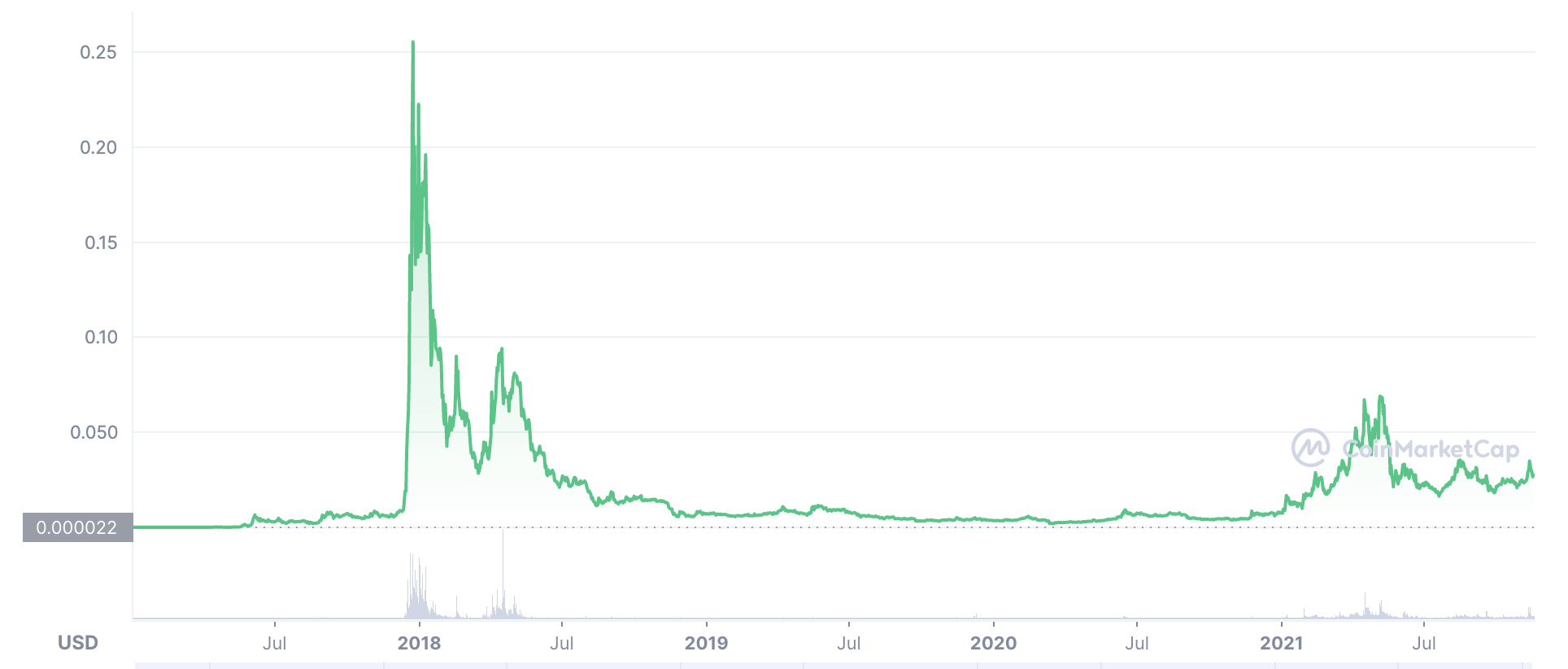Beware the trap of the long, slow decline
I’m going to use an example from crypto, but this note is not about crypto. It’s about how a long, slow decline can be the most dangerous kind of collapse.

Back in 2017 I got quite caught up in the crypto bull run, getting particularly interested in a privacy coin called Verge (XVG). The team seemed good, they promised the option of both public and private transactions and they had very low transaction fees. So I bought Verge and spent a lot of time in Telegram groups.
There were a couple of problems with Verge, though. One was that it became a bit of a meme coin, subject to the kind of market manipulation that is common in crypto, but that would be illegal in regulated financial markets. Another was that it was surrounded by enormous amounts of hype.
One particular hype cycle happened just before new year 2017/18, when there were rumours of a new tech launch and some big new partnership, something that would revolutionise the world of crypto. I remember the value of my Verge holdings increasing by $1k every couple of hours until I was at something like $20k on a $4k investment.
Having been through this once with Verge, I would now respond by selling and taking profits on the way up, but I didn’t do that, and guess what happened. There was no announcement and the price crashed.
What’s interesting is that after that big crash the team apologised and insisted that a big partnership was on the way. This ongoing hype, coupled with ‘bag holders’ hanging on (people who bought high, lost money, and wanted the price to go up again to recoup their losses) created a similarly overexcited sentiment.
So I, like many other people, held.
There was indeed an announcement of a partnership a few months later, except it wasn’t with a big global payment processor as had been hoped, it was with MindGeek, the company that owns Pornhub and other adult entertainment websites. Again, many people said this was stupid, while many more said things like “porn has always driven innovation in tech, this is good actually!”
So I, like many other people, held.
You can see from this chart how that went. In retrospect, it looks like the decline happened quickly, but look at the timescales — the decline back to its pre-hype baseline was a full year. The coin bled its value first quickly, and then slowly, and all within the context of a general sentiment that it could go up again at any moment.

This is a common story in crypto, but it’s the warning of a long, drawn out decline with the promise of improvement that never comes that I want to take from this experience, because this pattern can be seen in many places outside of crypto.
Consider a relationship that starts well, suffers a shock, and then starts to slowly decay. No single moment feels bad enough to leave, but it’s never what it was, and it might get better one day, you never know. A job can go exactly the same way. As can nations and entire civilisations.
While I have had experiences like this, and I’m writing this note in quite blunt terms, I don’t actually consider myself to be particularly cynical or jaded. Indeed, I suspect most people have seen this effect at least once in their lives.
No, I just want to learn to spot these patterns so I don’t get stuck in them for too long.
If the situation is such that I have the power to improve it, then let me notice that and cultivate the agency to improve it. If the situation is not one where I have influence, let me notice that and cultivate the agency to step away before all that was once precious is lost.
Whether it’s in relationships, in work, or in investing, the long, slow decline is perhaps the most insidious trap of all.
If you liked this, you may also like these:
- We must be able to talk about taboos
- Quitting my job was a no-regrets move
- The paradox of an untroubled life